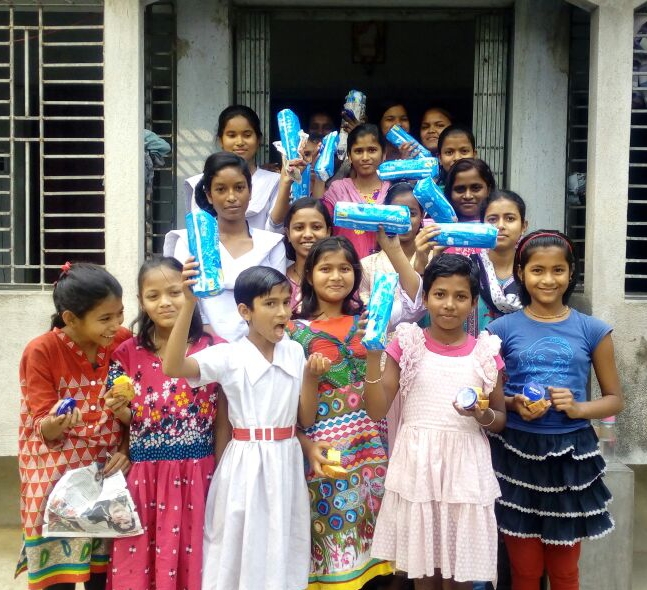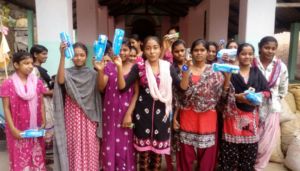

An estimated 355 million Indian women and girls must find ways to cope with monthly menstrual hygiene. Most of these women either have no access to toilets or are faced with unclean lavatory facilities. Moreover, they usually wait until night time before using public toilets or fields, which exposes them to various forms of physical attacks. A majority of rural women in India employ clothes and rags for feminine hygiene. These materials might predispose women to reproductive tract infections since it may be difficult for them to keep their used napkins clean and free of harmful bacteria. Washing reusable feminine products with soap and drying them in sunlight may be difficult due to lack of water, private facilities, and cultural taboos associated with menstruation.
Kolkata Mary Ward Social Centre has also joined the campaign on safe and hygienic menstruation. Through the Sensitization on Anti Human Trafficking, project it has extended its support of initiating the practice of using sanitary napkins through distributing Sanitary pads in the interior villages of Sunderbans to the adolescent girls through sensitizing them on health factors related to feminine hygiene.